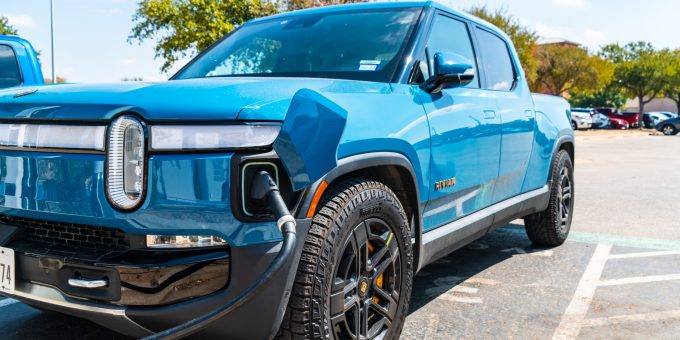
An electric pickup truck makes use of a Texas charging station.
same behavior, different meaning
What does it mean to drive an electric vehicle? For some, it may be a bold act of climate action while for others it may simply be a pragmatic cost-saving practice. In a cultural context in which these different meanings can signal divergent political outlooks, it’s incumbent upon sociologists to consider how meaning-making processes are shaping social responses to the climate crisis. That’s where a new paper in Social Forces comes in.
By tracing the material flow and meaning-making practices associated with electric vehicles from production through to consumption, Terence McDonnell, Anna Gabur, and Rachel Keynton argue that U.S. conservatives are purchasing EVs at an accelerating rate not because they’ve grown more concerned about climate change, but because they have been able to strategically redefine what an electric vehicle is. Conservative consumers focus, the authors find, on the money saved and freedom offered by driving an electric vehicle, rather than on climate change mitigation. This strategic redefinition enables conservative consumers to reaffirm their cultural identities while still engaging in a cultural practice typically associated with the “other side.”What does this tell us about the cultural politics of climate change? Most importantly, it suggests that people traditionally opposed to climate action may be very willing to engage in climate-friendly practices if they are offered up in culturally resonant ways. Making pitches to shift climate-related behaviors in a politically and culturally polarized country may mean adopting more than one framing.
